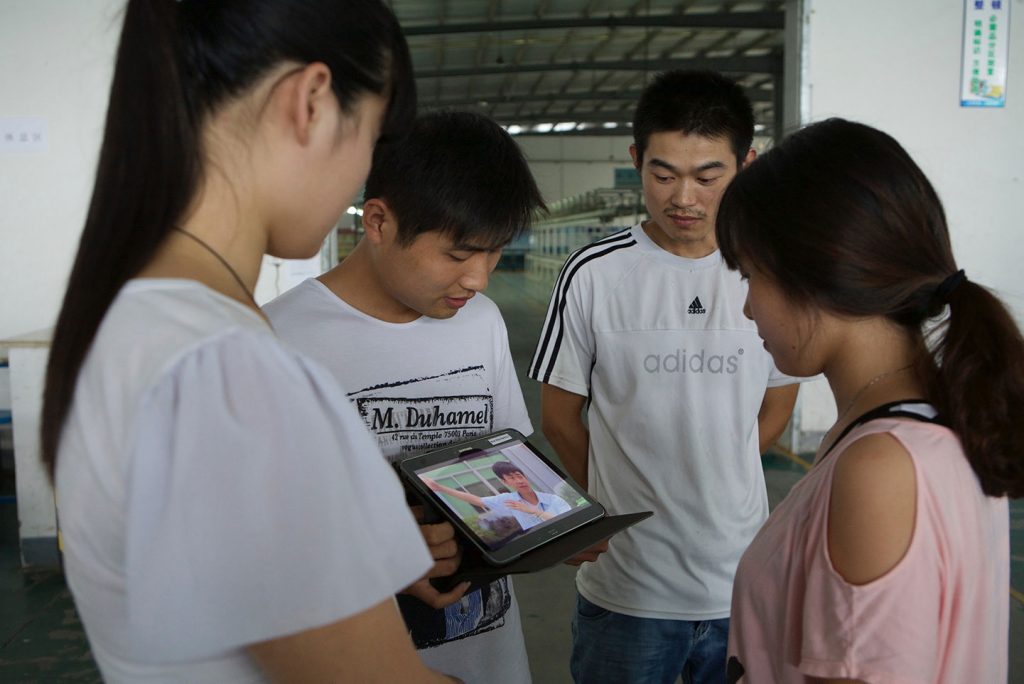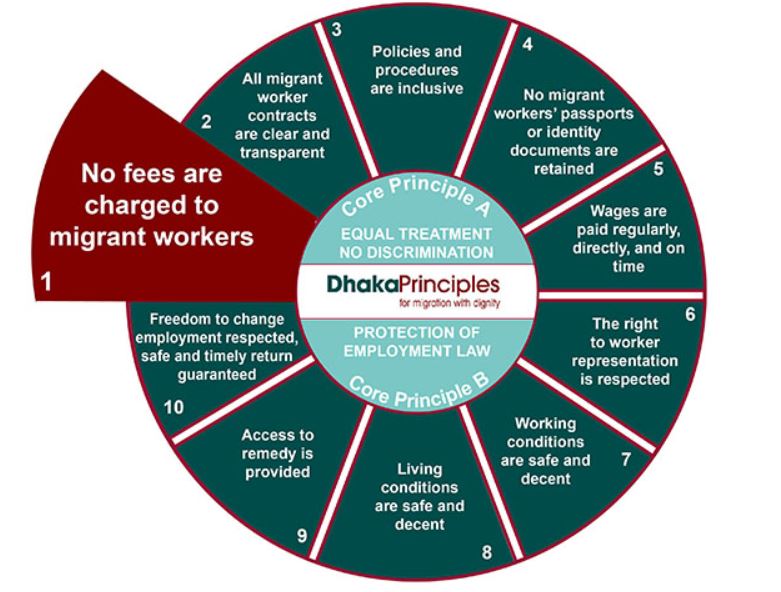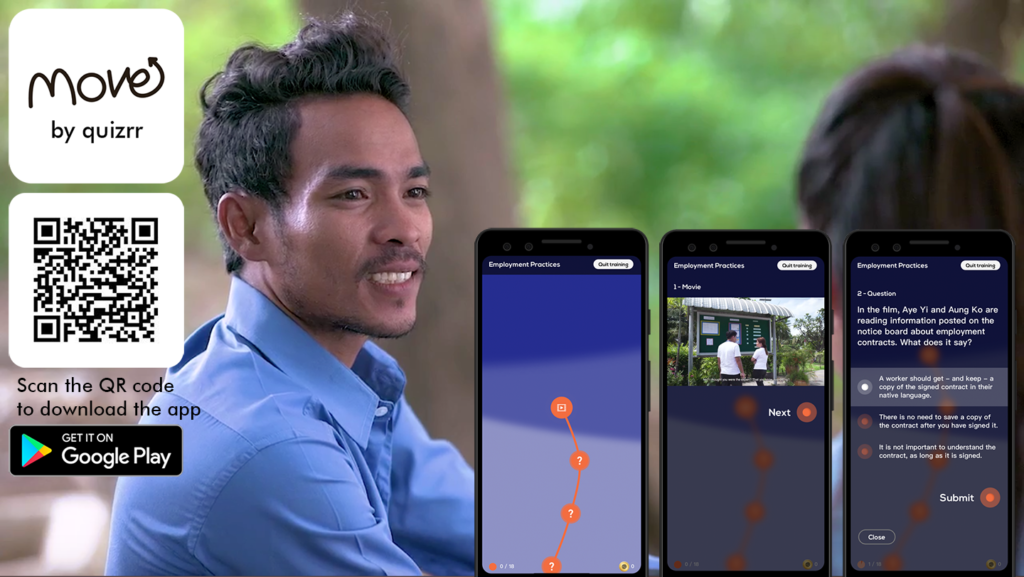MOVE – An Education App that Failed instead of Scaled
Can a mobile app help spread reliable information on corona prevention and workers’ rights amid a global pandemic? This is the question the project MOVE set out to answer, hoping to contribute to digital literacy and human rights risk mitigation among migrant workers in Thailand. However, infrastructural limitations and local behavioral patterns ultimately stood in the way for the project to reach its final goals.
The Issue
Swedish and European food retailers depend largely on deliveries from suppliers in Thailand, who in turn depend on migrant workers from Myanmar, Cambodia and Laos. Migrant workers are among the most vulnerable to exploitation and often have few opportunities to assert their rights. Among other reasons, a lack of livelihood opportunities in the home country leads to many accepting poor working conditions abroad. As the COVID-19 pandemic hit Thailand in 2020, thousands of migrants lost their jobs and were scattered all over the country in lockdown. The need for clear communication channels and reliable information was high, since the lack of it increased both health and human rights risks in the region.

MOVE aimed to empower migrant workers in global supply chains through easily accessible training, shared knowledge and constructive dialogue.
The vulnerability of migrant workers
Exploitation of migrant workers occurs at all stages of a typical migration cycle, from recruitment to employment and upon returning home. The corona pandemic has exacerbated the situation in manufacturing countries such as Thailand, as it has led to layoffs and increased insecurity for already vulnerable workers.
Migrants can get into debt to pay for visas, health checks and travel costs for temporary employment abroad. The Employer Pays Principle was launched to minimize this risk, in line with the DhakaPrinciples for migration with dignity. They state that employers must bear all costs related to employment.

Our Solution
To address this issue, Axfoundation and the ed tech company Quizrr developed a mobile app with free and secure information about corona prevention and rights-based training. The ambition was to reach migrant workers with open-access, important and relevant information in their native language.
The mobile app included training on rights and obligations, health and safety, employee representation, wage setting and ethical recruitment at supplier factories. The app also contained COVID-19 information produced by The International Organization Migration, IOM, whose website for migrants referred to the app and vice versa. Both the website and the app were in four languages, for migrants from Myanmar, Cambodia and Laos and locally employed Thais. Local chat groups and social media in Thailand were also linked to the platform.
The first purpose of MOVE’s efforts was to provide extra support and attention to the group of migrant workers during the pandemic. The second purpose was to prevent exploitation and discrimination by increasing the group’s awareness of rights, laws and regulations. A third aim was to increase the digital skills of migrants in a time characterized by digitization and automation. The approach was to get an efficient and scalable communication platform at low cost to a group that was in need of reliable information and rights-based training.

MOVE launched a mobile app with training in four languages for migrant workers in Thailand.
We wanted to make a quick, targeted and open effort in Thailand for those who were hit the hardest by the pandemic; the migrant workers. They support the food industry and contribute greatly to the food on our plates and the electronics in our hands and homes. The MOVE group and the mobile app showed that it is possible to innovate in difficult times, but it was challenging to scale.- Viveka Risberg, Axfoundation
Our Work
The project MOVE was initiated in 2020 as an expansion of The Nordic Initiative – a successful collaboration between ten Nordic food companies, including Axfood, Coop and ICA. The collaboration, which included the support from Axfoundation, started in 2017 to raise awareness about working conditions at supplier factories in Thailand. Using the positive experience of the educational efforts made in Thailand as a springboard, MOVE turned to companies and organizations in all countries and industries. The United Nations’ International Organization for Migration, IOM), was a key partner in MOVE.
Axfoundation was the project lead and assisted in raising the resources needed to enable the project, with funds and commitment from Swedish, US-based and other international organizations.
Results
As a digital solution, MOVE had the potential to be duplicated into other markets where migrants constitute a large portion of the workforce. However, despite support from IOM and other local organizations, the app turned out to be less of a great fit than first anticipated.
The MOVE app was only used about 300 times, well below the goal of 5,000 downloads. The project MOVE showed that it was possible to act quickly and efficiently with companies that had never collaborated before, from completely different industries and countries. Everyone had a common goal: to take responsibility for their supply chains and assist migrant workers.
The need for reliable information and preventive training remains, even if the acute pandemic situation is over. Axfoundation is open to the fact that the time may be ripe for a new initiative, not least because digital literacy is important for migrants, and that comes with the training app.
Progress Report 2023
Results from other projects
Axfoundation’s other investments in digital education via Quizrr have been evaluated on several occasions. Among other things, an evaluation of the Nordic Initiative’s investment in 2019 showed that the training of almost 2,300 migrant workers and managers at supplier factories in Thailand led to increased knowledge in responsibility and rights. In 2020, Axfoundation also conducted a performance evaluation of the effects on 19 suppliers to Axfood, Martin & Servera, KICKS, Filippa K and Åhléns. The report indicates that the working environment at Chinese supplier factories improved after long-term investments in digital training in the rights of employees and managers.
- Download the report “Combating unethical recruitment and discrimination of migrant workers in Thailand – 2019 Pilot report”

- Download the report “Any changes on the factory floor – Impact assessment of digital training on rights and responsibilities on 19 factories in China”

- Download the report “Any changes on the factory floor” in mandarin: 工厂车间有什 么变化吗?”

Why did it fail?
An evaluation by a third-party auditor noted that MOVE was challenged by infrastructural limitations as well as behavioral patterns in the target group. The lack of wi-fi and access to free internet was one major issue. Migrants usually have a paid SIM card and are naturally unkeen to spend airtime unnecessarily.
Another problem was purely behavioral. Despite frequently downloading and using social media applications, migrant workers were not used to downloading educational or informational applications. These challenges were addressed by trying to collaborate with local organizations, however travel restrictions made it difficult to reach the migrant communities. Axfoundation was also in dialogue with a large telecom operator with several million migrant customers, but a company merger got in the way of a collaboration.
What did we learn?
Despite the disappointing results, the MOVE pilot came with important insights. The engagement on the company level during a difficult time was encouraging. The project partners had never collaborated before, some were even competitors. The fact that it was possible to mobilize, co-fund, develop, and launch the app in five different time zones during a lockdown situation was impressive. The willingness to innovate was strong to mitigate human rights risks in the supply chain per the UN Guiding Principles for Business and Human Rights.
The most important lesson for the future: Digital solutions can be powerful democratic instruments for awareness raising among vulnerable groups. However, it is essential to first understand the infrastructural prerequisite and its limitations for the users, while ensuring a viable business model.
The UN Guiding Principles
The UN Guiding Principles for Business and Human Rights, the UNGPs, recognize that companies should undertake human rights due diligence measures, such as assessing actual and potential human rights risks and taking effective measures to mitigate those risks.
Partners
MOVE included partners such as Axfood, Axfoundation, Electrolux, HP, International Organization for Migration, Quizrr, Ulula and Unil (NorgesGruppen).
Although the project MOVE came to a close at the end of the pandemic, companies continued to work with Quizrr on their supplier companies in Thailand. The MOVE app is up and running for the time being and can be downloaded where apps are available (search for Quizzr Move).

























